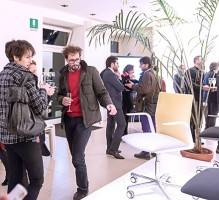April 22, 2015
Flexible working and smart tools prove a big hit with UAE employees 0
 It’s not just in the UK where employees say they are attracted by the idea of flexible working. A new study from YouGov commissioned by the Dubai based Federal Authority for Government Human Resources (FAHR) claims that employees in the United Arab Emirates now rate employers most highly for the smart tools and flexible working opportunities they offer. The study of over 1,000 employees and HR professionals in the UAE was commissioned to uncover emerging trends in human capital management. It found that 64 percent of employees rate flexible working hours, provided by employers based on personal circumstances, as good or very good, which is particularly prevalent amongst Emirati respondents (83 percent). The majority of employees (74 percent) also believe a remote and flexible work schedule increases their productivity.
It’s not just in the UK where employees say they are attracted by the idea of flexible working. A new study from YouGov commissioned by the Dubai based Federal Authority for Government Human Resources (FAHR) claims that employees in the United Arab Emirates now rate employers most highly for the smart tools and flexible working opportunities they offer. The study of over 1,000 employees and HR professionals in the UAE was commissioned to uncover emerging trends in human capital management. It found that 64 percent of employees rate flexible working hours, provided by employers based on personal circumstances, as good or very good, which is particularly prevalent amongst Emirati respondents (83 percent). The majority of employees (74 percent) also believe a remote and flexible work schedule increases their productivity.

























May 5, 2015
A responsible approach needed for the design and build of London’s towers 0
by Paul Chilton • Architecture, Comment, Property
More →